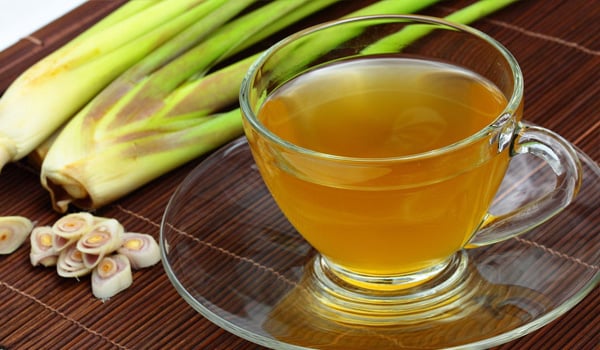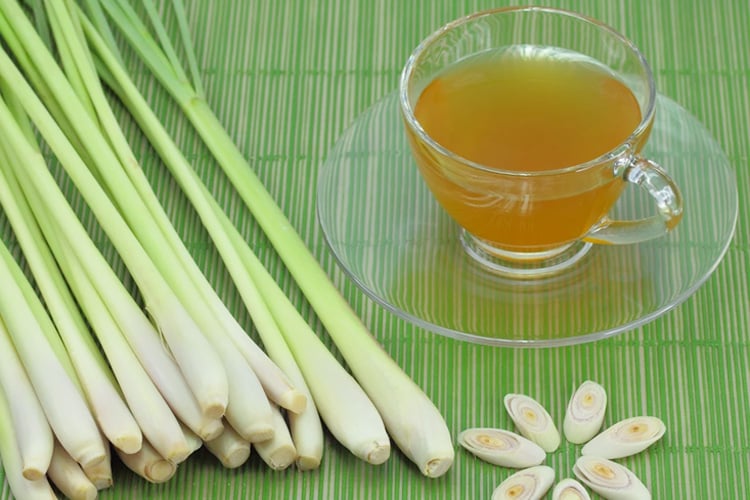
t’s an aromatic healer, a refreshing beverage, has the fragrance of lemon, is milder and sweeter in taste, and serves as a reminder of bright and cheerful days. It is often used in Thai and other Asian cuisines for its potent flavor. In India, it has been used for many years on medicinal grounds. It is also an Ayurvedic favorite. It’s Lemongrass Tea, a healthy beverage and a health boost.
What is Lemongrass Tea?
Firstly, what is lemongrass?
A herb belonging to the grass family of Poaceae, which has distinct lemon flavor and citrusy aroma. It is a perennial plant which can be grown indoors or as a plotted plant.
How to make Lemongrass Tea? Chop the grass, put it in water, boil it and let it steep for 10-15 minutes. You can also put lemongrass pieces in a teapot and allow it to brew.
If you are pressed with time, there is always the option of exploring tea bags with dried lemongrass.
Nutritional Values of Lemongrass Tea
Well, nutritionally, lemongrass is pretty sound. It has the following:
- Vitamin A
- Vitamin C
- Folate
- Folic Acid
- Magnesium
- Zinc
- Iron
- Copper
- Potassium
- Calcium
- Phosphorus
- Manganese
- Traces of B vitamins
Here is the List of Lemongrass Tea Benefits
You will be surprised to know that Lemongrass is used in the making perfumes, deos, polishes, candles and waxes. It also adds fragrance to soaps and cosmetic products.
1. Lemongrass Tea for Weight Loss
When taken in tea form, lemongrass contributes fewer calories. 1 tbsp of lemongrass has 5 calories and 1 gm carbohydrate.
How to Use: Drink a cup of plain lemongrass tea before you take a meal. It will help you in weight loss mission by filling you up, so that you eat less.
2. Lemongrass Tea Pregnancy
A word of caution – lemongrass may cause certain side effects during pregnancy. So it is not recommended for pregnant women.
Note: If you are looking for safe teas during pregnancy, then you can consider drinking raspberry, ginger, or thyme blends of tea. But it is always wise to speak to your doctor before drinking herbal supplements during pregnancy (no matter how safe they are).

3. Helps Digestion
Lemongrass Tea helps treat digestive health problems. There are many actually – indigestion, constipation, heart-burn, diarrhea, bloating, vomiting, stomach spasms, cramps and flatulence. Lemongrass has anti-microbial properties which provides relief from gastroenteritis.
How to Use: To get a healthy digestive tract, make a switchover from drinking milk-based tea to lemongrass tea regularly.
4. Controls Cholesterol Levels
Lemongrass has high potassium content which reduces and regulates blood pressure.
How to Use: Drink a cup of lemongrass tea, not once, but every day. This will help lower your cholesterol level and reduce BP.
Note: You can also take lemongrass in supplement form, after consulting a doctor.
How to Use: Drink lemongrass tea regularly. It will help your body get rid of harmful toxins.
[sc:mediad]
6. Heals Colds and Flu
Seasonal colds and flu are not only troublesome, they can be irritating. Luckily, the anti-bacterial and antifungal properties of lemongrass reduce the incidence of cold, cough, fever, and flu symptoms.
How to Use: Boil few strands of lemongrass, 2-3 cloves, 1 cinnamon stick (small), 1 tsp turmeric powder in a cup of milk. Strain it. When it cools down, drink it. More importantly, have it once a day for few days.
Note: Lemongrass is beneficial for those suffering from asthma or bronchitis. That’s because it effectively breaks down mucus and phlegm, which clog normal breathing.
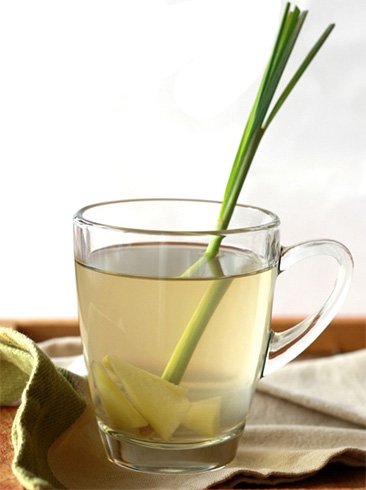
7. Fights Cancer
Happy to know that a research done at Ben Gurion University, Israel shows that lemongrass tea can fight cancer thanks to a component called “citral” in it. In Israel nation, cancer patients are encouraged to take lemongrass tea at the time of radiation or chemotherapy.
Note: Another published study shows that citral in lemongrass slows down the growth of breast cancer cells in the laboratory.
8. Reduces Arthritis Pain
Thanks to its pain-relieving properties, lemongrass is of great help in treating arthritis and related problems like osteoarthritis, rheumatism, gout and other types of joint pain.
How to Use: Mix lemongrass oil and coconut oil in a 1:2 ratio. Rub it on the affected area. After a couple of hours, rinse it off. Repeat this daily for a few weeks. The other option is to drink lemongrass tea twice daily.
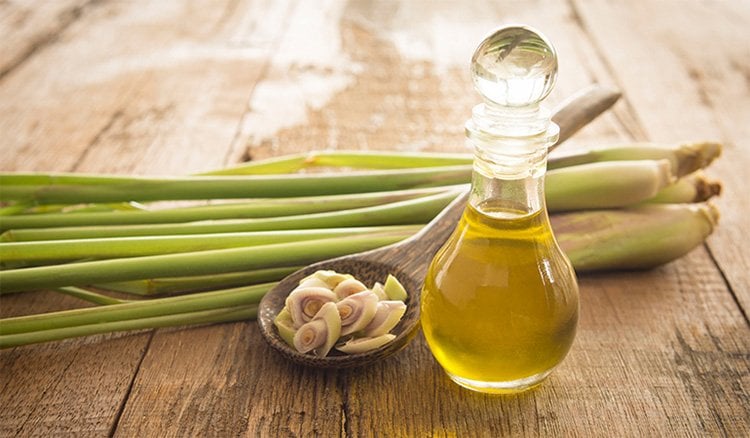
9. Benefits New Mothers
Lemongrass can be taken by new mothers who are breast-feeding (not expecting mothers). Why because it has properties that increase breast milk production.
How to Use: Ladies who are lactating can drink 1-2 cups of lemongrass tea daily.
Note: Pregnant women to strictly avoid taking lemongrass tea.
10. Fights Depression
Lemongrass has anti-depressant properties which help fight depression. In fact, the herb provides relief from anxiety, uplifts spirits and self-esteem, makes you feel more confident and improves mental strength.
How to Use: Whenever you are feeling depressed or are in a low mood, have a cup of lemongrass tea. This will help you keep your calm and cool.
11. Staphylococcus Aureus
According to studies, lemongrass essential oil provides resistance to the infection caused by Staphylococcus aureus by destroying the germs’ growth.
How to Use: Apply lemongrass essential oil topically.
12. Insomnia
Down with sleeplessness? Lemongrass tea is there to soothe your nervous system. It tackles chemical imbalances which are the main reasons for insomnia.
How to Use: Sip a cupful of lemongrass tea before going to sleep to get relief from insomnia.
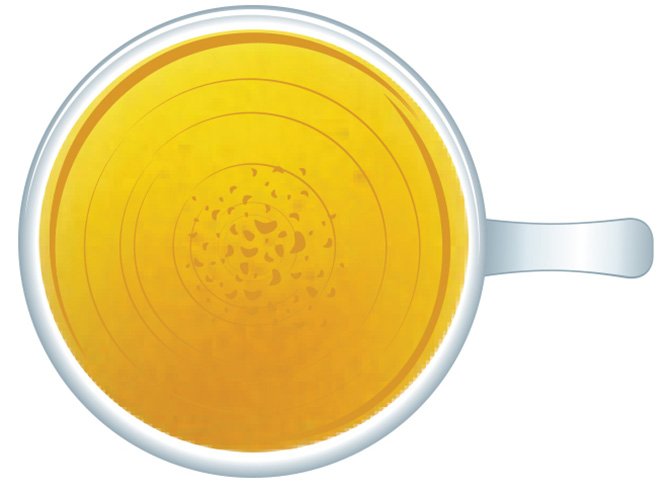
13. Respiratory Disorders
Coughs or colds, Lemongrass is widely used for its healing effects. The vitamin C in it provides relief from nasal blockages, flu and bronchial asthma.
14. Fever
Ever heard of ‘Fever grass’? This is what Lemongrass is due to its beneficial effect in lowering fevers.
Note: The anti-pyretic effect of lemongrass is majorly used in curing fevers by inducing sweating.
15. Infections
Call Lemongrass an ANTISEPTIC. That’s because it effectively treats infections such as sores, scabies, ringworm, Athlete’s foot, even urinary tract infections (UTIs) thanks to its anti-microbial and anti-fungal properties.
16. Aches
Why bank on allopathic drugs when there is lemongrass to reduce the pain and discomfort that occurs due to migraines? Lemongrass has phytonutrients that bring relief from spasms, sprains, backaches and muscle cramps.
Note: Lemongrass is immensely valuable in treating sports wounds (such as bruises, dislocations, internal injuries).
17. Nervous System
What does lemongrass do for the brain? It is a nervine, meaning it calms the nerves. That is why, it has been used as a proven tonic for the nervous system. In fact, lemongrass combats convulsions (uncontrolled fits), nervousness, vertigo (sense of dizziness) and disorders such as Alzheimer’s and Parkinson’s disease.
How to Use: Lemongrass herb can be widely used in ‘Therepeutic’ baths. It helps in calming the nerves and reducing anxiety and fatigue symptoms caused by external factors such as stress.
18. Type-2 Diabetes
Lemongrass is an asset in treating Type-2 diabetes. The purifying effect of lemongrass tea helps detoxify the pancreas and improve its functions. Thus, lowering the blood sugar levels in diabetics.
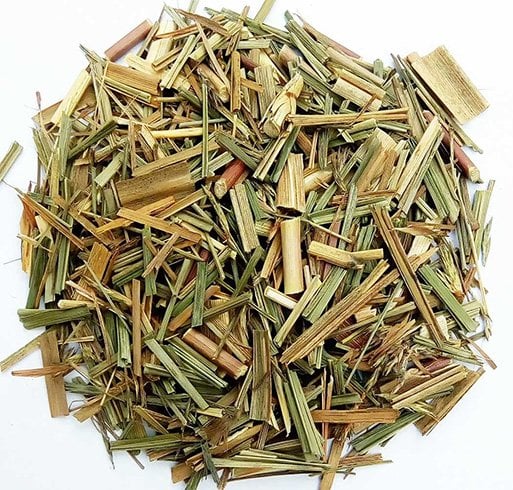
19. Rheumatism
Lemongrass is pretty useful and effective in relieving the pain and discomfort that happens due to rheumatism (inflammation and pain in the joints, muscles and tissues).
How to Use: Apply lemongrass oil topically on sprains and lower back for rheumatism-relief.
20. Immune System
Lemongrass boosts the vital systems of the body – whether it is for nervous, digestion, respiration or excretion functions. The herb facilitates better absorption of nutrients and strengthens the defense mechanism of our body.
21. Skin Care
Lemongrass is beneficial for skin. Why? Because it tackles a wide variety of skin issues – from large skin pores to fungal infections thanks to the Vitamin A in it which provides good astringent properties, helps minimize open pores, reduces oil/sebum secretions from the skin and imparts tightness and firmness to the skin.
How to Use: Mix 1.5 cups of sliced lemongrass in a cup of Olive oil. Heat it for 5 minutes. Let it cool first and then apply it on the skin.
Note: Before using lemongrass oil, always dilute it with water or another base (such as olive oil).
22. Cellular Health
The anti-oxidant qualities in lemongrass protect the cells in our body from harmful free radicals. It also helps in cleansing the blood, and supports the functioning of the thymus glands (which aid in the production of white blood cells).
23. Edema
Swollen feet or edema is neither a good sight nor a healthy one. Use lemongrass oil in combination with other essential oils to get relief.
How to Use: Mix 2 drops each of lemongrass oil, cypress oil and grapefruit oil. Dilute this oil blend in 1 tbsp coconut oil. Now massage this oil mixture on the swollen feet.
24. Aromatherapy
Heard of Skin Uplifting? Lemongrass does that. It has some of the best essential oil ingredients – nerol, citronellol, myrcene, dipentene, geraniol and methyl heptenone. They have anti-fungal, antiseptic properties which makes them the best bet in the field of Aromatherapy, owing to their therapeutic, revitalizing and refreshing effect.

Note: The cooling effect of Lemongrass is very beneficial for the body especially during hot weather. Lemongrass oil is bestowed with astringent and toning qualities which help in stimulating blood circulation, tightening, uplifting and firming sagging skin. So all you beauties out there – don’t just drink lemongrass tea but massage it on your skin as well.
25. Obesity
The citral in lemongrass is effective in combating obesity. When orally consumed or applied on stubborn fat, it starts its role of preventing abdominal fat from accumulating in the body.
26. Body Odor
In “diluted” form, lemongrass oil is a good deodorant. You will be surprised to know that beauty experts find lemongrass oil more effective than synthetic deodorants. Citral, the main component of lemongrass, contributes to the aroma.
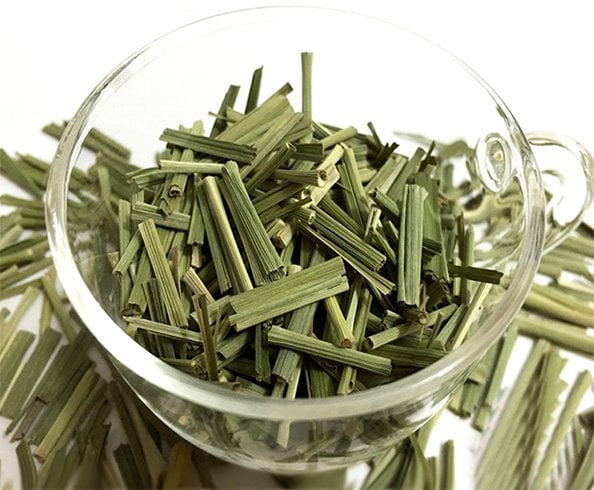
How to Use: Add Lemongrass to foot baths for sanitizing sore and smelly feet.
Note: The good thing about lemongrass is that it will not cause skin irritation or worsen skin allergies.
27. Insect Repellant
One of the best extracts from lemongrass leaves and stems is Citronella oil. This is a potent insect repellent, and can be found in soaps, perfumery, and flavorings. All in all, lemongrass helps in preventing insect-borne diseases like malaria, dengue and Lyme.
28. Culinary Usage
Lemongrass is an integral part of Asian cuisines, particularly Vietnam, Thailand, and Malaysia.
How to Use: Lemongrass adds flavor to wide range of culinary dishes such as beverages (teas, curries and soups), and is used in the preparation of baked goods, puddings, candies, and meat products.
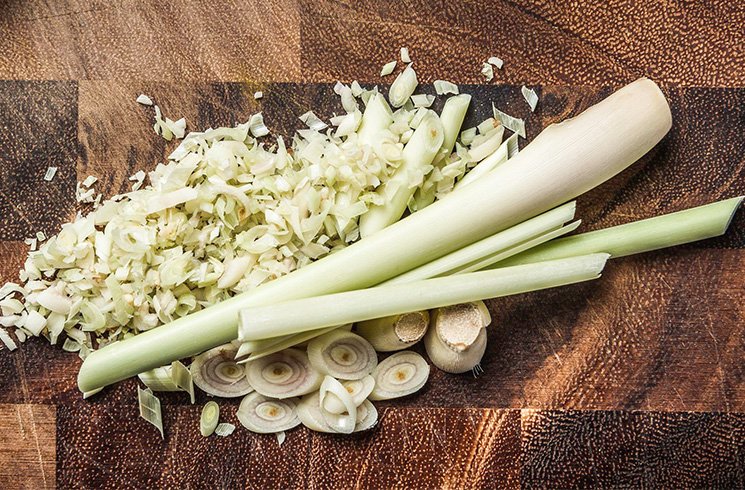
Lemongrass Tea Side Effects:
Avoid Lemongrass (oil application on skin or in tea form) if you face any of these situations:
- Suffering from allergy
- Or are hypersensitive to lemongrass
- May also cause irritation and burning (if not diluted properly for skin application)
- May lower blood sugar levels. Patients with diabetes or hypoglycemia should exercise caution
- Those facing liver conditions should use lemongrass with caution.
- Not recommended during pregnancy as certain type of chemical compounds in lemongrass may cause decreased birth weight.
Lemongrass Tea Recipe:
Here is how to go about it. When are you making it?
Ingredients: Clumps of Lemongrass, 1 Cup Water, Milk (if desired), Sugar and Honey (to taste), and a Strainer
Directions:
- Peel the outer surface of the lemongrass leaves (to avoid bitter flavor)
- Boil water and add clumps of lemongrass leaves to it
- Let the water boil on slow flame for 20 minutes. This will help extract the essence of the leaves.
- Add sugar or honey and boil it for 5 more minutes. You can add milk to it (if you so desire).
- Remove it from the flame.
- Strain it in the cup.
- Drink it HOT.
Tips: You can also go in for “iced” version of lemongrass tea. But while making it, avoid adding milk.
Precaution for Lemongrass Tea:
Following should avoid taking lemongrass in any form (herb or oil):
- Pregnant women
- People with liver or kidney diseases
- People allergic to lemongrass
- Avoid getting lemongrass oil in eyes
Final Words about Lemongrass Tea:
So when are you adding a healthy and refreshing aroma to your lifestyle? Do it today with Lemongrass – a herb that touches your life in multiple ways. Do write in and tell us how you found this blog.
Images Source: pinterest
